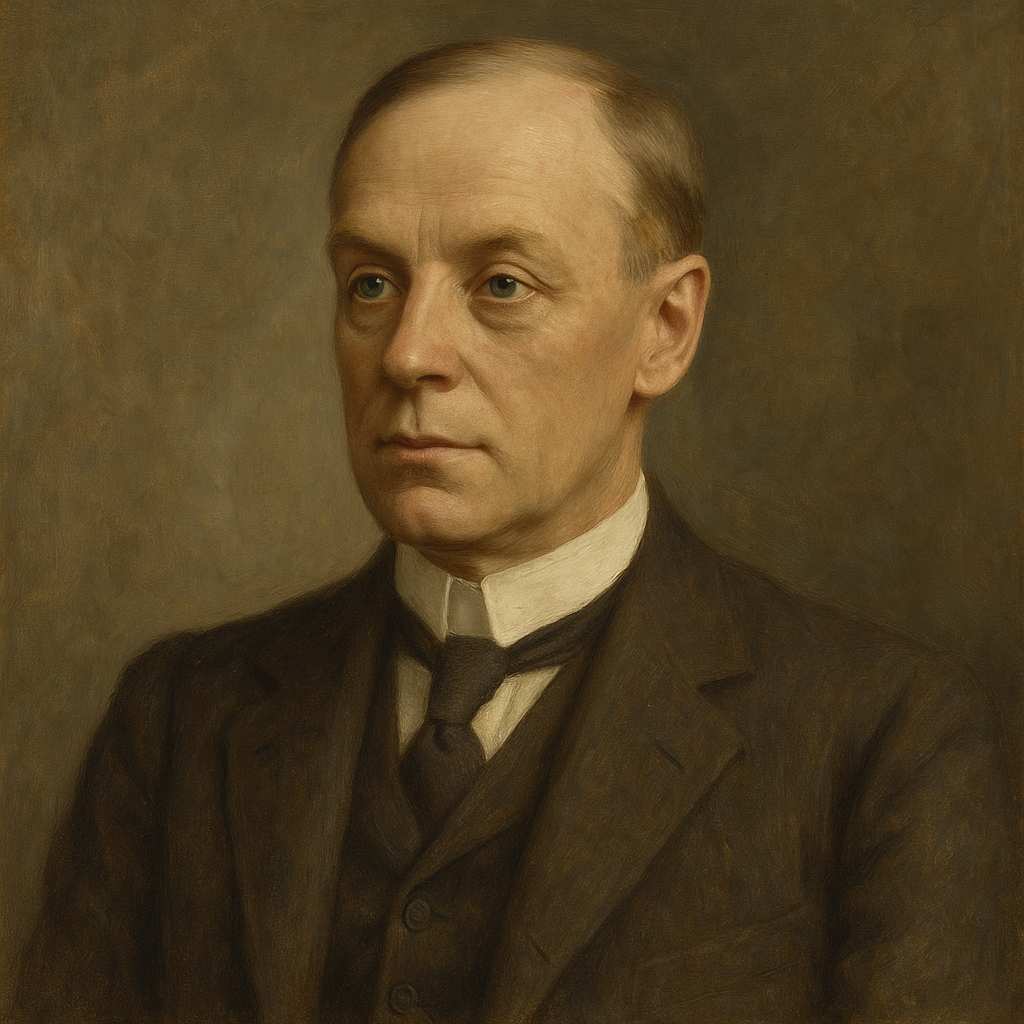1 Poems by Robert W. Service
1874 - 1958
Robert W. Service Biography
Robert William Service, often called the "Bard of the Yukon," holds a unique and captivating place in the pantheon of modern poetry. Born on January 16, 1874, in Preston, Lancashire, England, Service's life was a colorful tapestry woven with adventure, wit, and a deep connection to the rugged landscapes and characters that inspired his work. Through his vivid storytelling and rhythmic verse, he became one of the most widely read and beloved poets of his time, often compared to Kipling for his ability to immortalize the spirit of a place and its people.
The eldest of ten children, Service grew up in a family of modest means. His father worked as a banker, a profession Service himself would later adopt temporarily, though his heart always leaned toward a more unrestrained life. At the age of five, Service moved with his family to Scotland, where he would spend much of his formative years. From a young age, he displayed an appetite for literature and storytelling, penning his first poem at six. His education at Glasgow's Hillhead High School and subsequent enrollment at the University of Glasgow further nurtured his literary ambitions, though he soon found academic life stifling. In 1896, at the age of 22, he abandoned his studies and set sail for Canada, seeking adventure and a chance to write.
Service's early years in Canada were far from glamorous. He drifted between odd jobs, working as a farm laborer, cowboy, and store clerk, experiences that deeply influenced his writing. The vast and untamed Canadian wilderness captivated him, and he spent much of his time observing and interacting with the diverse characters who inhabited the frontier. These encounters would later form the bedrock of his poetry, infusing his work with authenticity and a keen sense of place.
In 1903, Service secured a position with the Canadian Bank of Commerce in Whitehorse, a small town in the Yukon Territory. It was here that he truly found his muse. The Klondike Gold Rush, though past its peak by the time of Service's arrival, had left an indelible mark on the region, and its stories of hardship, greed, and resilience fascinated him. Inspired by the tales of gold prospectors and adventurers, Service began to write verses that captured the essence of the Yukon and its inhabitants.
His breakthrough came in 1907 with the publication of Songs of a Sourdough (titled The Spell of the Yukon and Other Verses in the United States). This collection, including iconic poems such as "The Shooting of Dan McGrew" and "The Cremation of Sam McGee," catapulted Service to fame. These narrative poems, characterized by their rollicking rhythms and vivid imagery, painted a world of larger-than-life characters and dramatic escapades. They resonated deeply with readers, who were drawn to Service's ability to evoke the romance and danger of frontier life. The collection sold over three million copies, a staggering success that transformed Service into one of the highest-paid poets of his era.
Service's style, often compared to that of Rudyard Kipling, eschewed the highbrow formalism of much contemporary poetry in favor of accessibility and entertainment. His use of ballad forms, simple rhymes, and conversational language made his work approachable to a broad audience. Critics, however, were divided; some dismissed his work as doggerel, while others praised its vitality and narrative power. Service himself was unapologetic about his populist appeal, once remarking, "Verse, not poetry, is what I was after ... something the man in the street would take notice of and remember."
In 1909, Service moved to Dawson City, another Yukon town steeped in Gold Rush history, where he continued to write and immerse himself in the local culture. His next collection, Ballads of a Cheechako, published in 1909, further cemented his reputation as the poet of the North. This volume expanded on the themes of its predecessor, exploring the trials and triumphs of life in the wilderness with humor, pathos, and a keen eye for detail.
Despite his association with the Yukon, Service's restless spirit led him to travel extensively. In 1912, he left Canada and embarked on a journey that took him to Europe, North Africa, and beyond. During World War I, he served as a war correspondent and ambulance driver, experiences that inspired his 1916 collection, Rhymes of a Red Cross Man. This volume marked a departure from his earlier work, delving into the grim realities of war with a poignancy and gravity that resonated with readers. The poem "The March of the Dead," for instance, offers a haunting meditation on the futility and cost of conflict, showcasing a more somber side of Service's artistry.
After the war, Service settled in France, where he married Germaine Bourgoin in 1919. The couple lived in a villa in Brittany and later on the French Riviera, where Service continued to write prolifically. His later works, including novels, memoirs, and additional poetry collections, reflected his diverse interests and experiences. Though none achieved the same level of acclaim as his Yukon ballads, they demonstrated his versatility and enduring commitment to storytelling.
Service's later years were marked by a comfortable life, though he remained an adventurous spirit at heart. During World War II, he fled the Nazi occupation of France and lived in California for a time before returning to his home in Brittany after the war's end. His memoirs, including Ploughman of the Moon (1945) and Harper of Heaven (1948), provide fascinating insights into his life and creative process, revealing a man who valued independence, curiosity, and the power of imagination.
Robert W. Service passed away on September 11, 1958, at the age of 84, leaving behind a legacy that continues to captivate readers around the world. His poems, celebrated for their humor, humanity, and evocative imagery, remain a testament to his ability to transform the ordinary into the extraordinary. Through his work, Service not only immortalized the spirit of the Yukon but also reminded us of the universal allure of adventure and the enduring power of storytelling.
To this day, Service's poetry is celebrated for its ability to transport readers to a bygone era of gold rushes, rugged landscapes, and indomitable characters. His verses, steeped in the lore and legend of the North, continue to inspire both literary enthusiasts and adventurers alike, ensuring his place as one of the most distinctive voices in modern poetry.
This text was generated by AI and is for reference only. Learn more
Username Information
No username is open
Everything is free to use, but donations are always appreciated.
Quick Links
© 2024-2025 R.I.Chalmers (V2Melody).

All music on this site by R.I.Chalmers (V2Melody) is licensed under a Creative Commons Attribution-NonCommercial 4.0 International License.
Attribution Requirement:
When using this music, you must give appropriate credit by including the following statement (or equivalent) wherever the music is used or credited:
"Music by R.I.Chalmers (V2Melody) – https://v2melody.com"
Support My Work:
If you enjoy this music and would like to support future creations, your thanks are always welcome but never required.
Thanks!


